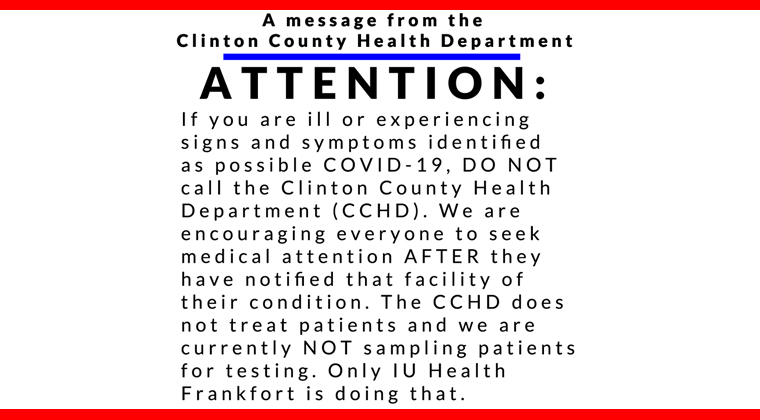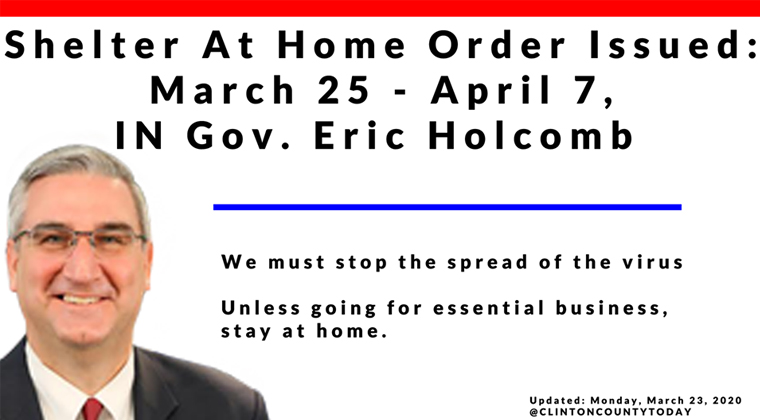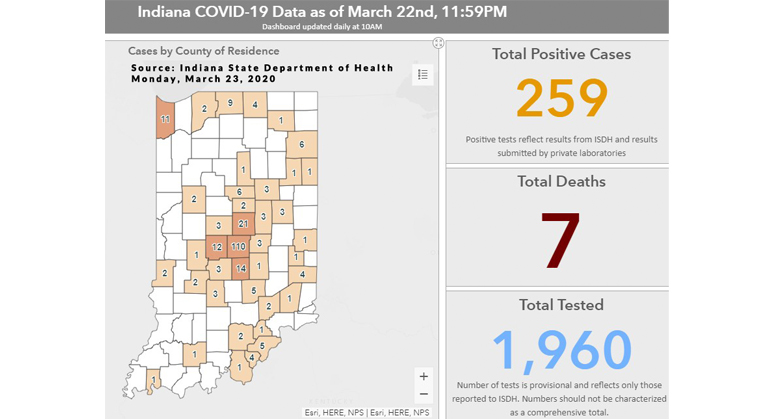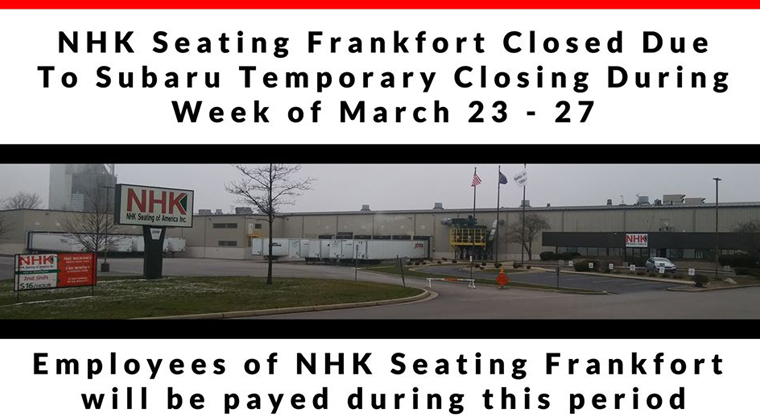If You Are Ill or Experiencing Signs and Symptoms Identified As Possible COVID-19, DO NOT Call The Clinton County Health Department
Please see the full post from the Clinton County Health Department:
ATTENTION: If you are ill or experiencing signs and symptoms identified as possible COVID-19 and have respiratory…
Posted by Clinton County Health Department on Wednesday, March 25, 2020










